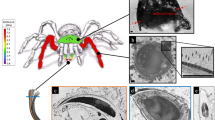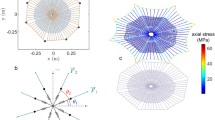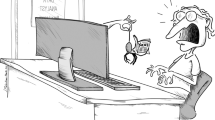Abstract
THE experiment given by Mr. Boys can be successfully made with a common table-fork. The spider will seize the handle and grapple with it in a ridiculous fashion, but it soon tires of the performance. The prongs will continue vibrating for some little time if struck smartly on a wall.
Similar content being viewed by others
Article PDF
Rights and permissions
About this article
Cite this article
E., A. Some Habits of the Spider. Nature 43, 55 (1890). https://doi.org/10.1038/043055e0
Issue date:
DOI: https://doi.org/10.1038/043055e0



